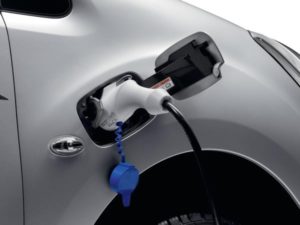Government plans to reform the van VED regime will hit small businesses the hardest while failing to incentivise those currently making cleaner choices.

So say both the British Vehicle Rental and Leasing Association (BVRLA) and the Federation of Small Businesses (FSB), which are calling for the plans to be reformed until there is a greater supply of affordable low-emission LCVs on the market.
Announced in the Spring Statement, the plans are intended to “help the Great British White Van driver go green with a consultation on reduced VED rates for the cleanest vans”, according to the Chancellor.
But the BVRLA has responded to the consultation, which ran from 15 May to 20 July, by highlighting the lack of low-emission options currently on the market and pointing out that those vehicles that are available are usually far more expensive than their Euro 6 diesel equivalents. This would penalise van users for carrying out necessary everyday work, hitting small businesses hardest as many operate on tight margins and cannot easily absorb such additional costs.
The BVRLA also raised concerns about part of the plans that could mean Euro 4 or 5 vehicles would not be included and instead would continue to be charged at the current, lower rate. This could see operators of newer Euro 6 diesel vans charged a higher tax rate, despite being markedly cleaner.
BVRLA chief executive Gerry Keaney said: “By allowing older, more polluting vans to continue to be taxed at a lower rate than newer, more efficient diesel vans the Government is sending the wrong signal and is failing to reward those making cleaner choices.”
Keaney added that the Government is missing a range of tricks to incentivise van choices, including increasing the value of plug-in van grants to deliver price parity with diesel vans.
Both the BVRLA and FSB also suggested the Government should incentivise manufacturers to produce a more affordable range of greener vans across all vehicle weight ranges.
Martin McTague, policy chairman, FSB, explained: “Government must help the transition to produce green vans, by providing incentives to manufacturers and offering more R&D tax credits to those creating this innovative technology. Without this investment, switching to greener transportation will remain out of reach for many small firms.”

